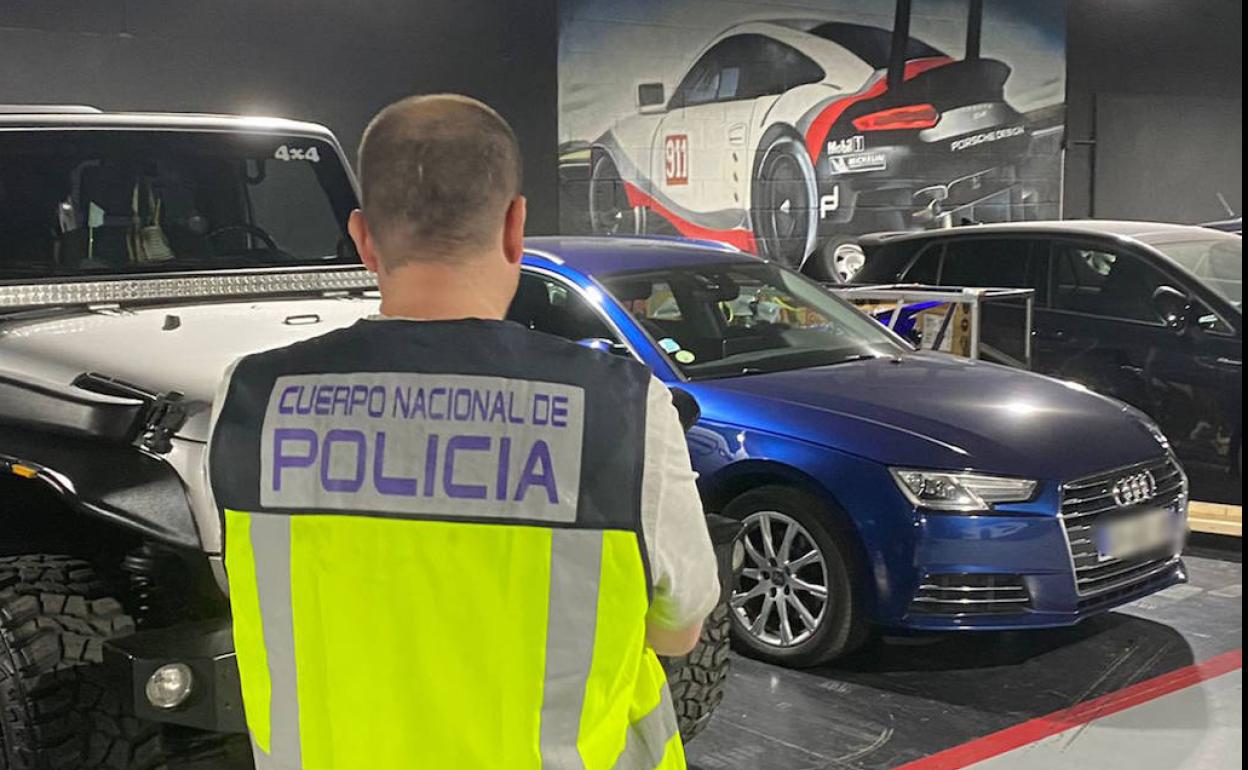Leader of gang that laundered money through sale of luxury cars arrested in Marbella
Assets worth more than 2.3million euros were seized during the investigation, which lasted more than two years
SUR
Wednesday, 20 July 2022, 19:15
Spain’s National Police force, together with the Belgian Federal Police and Europol, have arrested the leader of a criminal network that allegedly laundered money from drug trafficking through a luxury car dealership located in Marbella.
The investigation in Spain began following an operation by Belgian police earlier this year in the Antwerp region against a drug trafficking organisation. This operation led to the seizure of a large amount of banking and financial information, which then drew the attention of the investigation to Spain.
Officers carried out four searches in Malaga province, including the home of the main suspect and several of his associates, as well as the car dealership. Four firearms, 45,000 euros in cash, several high-end cars and numerous valuable watches and jewellery were seized, as well as a property worth more than 600,000 euros.
Throughout the operation, which lasted more than two years, authorities have seized assets worth more than 2,300,000 euros, although the amounts laundered through this organisation are said to be much higher. The person arrested in Spain is awaiting extradition to Belgium.
Luxury car sales
The network offered money laundering services to drug traffickers, allowing them to hide the origin, nature and destination of the funds used to acquire the vehicles, as well as the ownership of the luxury cars themselves.
The cash proceeds of drug trafficking were first collected in Belgium, before being used in other European countries to purchase luxury vehicles with prices often in excess of 100,000 euros.
By purchasing the high-end vehicles, the criminals were effectively converting the illicit cash into consumer goods that would serve to conceal the origin of the money. These cars were then exported to other countries such as Spain, where in many cases they were re-registered. These cars were used both for high-end rentals as well as being sold.
Coordination with European organisations
The operation was coordinated with the support of Europol through the European Financial and Economic Crime Centre (EFECC), which provided analytical support and put national investigators in contact with each other in order to agree on a joint strategy and prepare the final phase of the investigation.
Experts were deployed in both Antwerp and Marbella for two days to facilitate the exchange of operational information and assist with the forensic analysis of the seized items. This part of the investigation was carried out with the financial support of Empact (European Multidisciplinary Platform Against Criminal Threats) funds.
